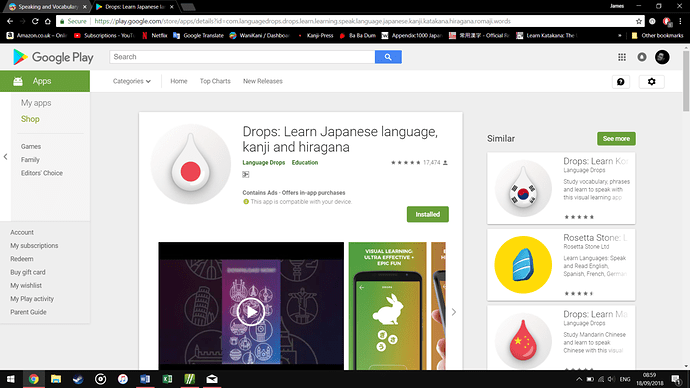I’ll offer some theoretical rather than practical advice which is more about language learning than the particulars of living in Japan. I think all the previous advice in this thread about “getting out there” is excellent. But, I also think it’s quite natural that you find yourself unable to speak Japanese in daily life even after studying it for a year.
I recently watched this video from the 80s by Stephen Krashen,
where he presents his theory on language acquisition. In a nut, he says that the best way to learn a language is through heavy exposure to comprehensible input. And he gives an example of a neighbour girl who moved to the US from Japan and didn’t speak a word for the better part of a year in spite of his efforts. But after a certain period of time, enough knowledge had been acquired that she did start speaking.
So, most people know that kids under a certain age have this ability to absorb a new language and learn how to speak it without any accent in a relatively short period of time. As we age, that outcome becomes less likely due to our brains not being in such an extreme growth phase as they were when we were children.
But I think it’s also that we as adults are very effective at shutting off situations where we are as helpless as children. So rather than staying open to learning a new language, we retreat to the language we already know. That’s human nature.
So, understanding your situation, that you need to focus on English only at work, my suggestion is to spend your free time absorbing as much Japanese as possible in a really focussed way. And maybe especially content aimed at children, because it will be more comprehensible. In your case, I’d focus more on listening/watching rather than reading, since the goal initially is more to be able to converse than to read a newspaper or novel.
But also, WaniKani is excellent at building your vocabulary. I’ve studied Japanese for more than a few years with varying degrees of success because my wife is Japanese. But since the beginning of this year when I started WaniKani, I’ve learned so much new vocabulary as well as obviously learning how to read way more kanji than I ever could before.
WaniKani does teach a lot of useful vocab, as well as a lot of less useful vocab. So a lot of people use other SRS systems like Anki or Memrise to learn more words, like maybe starting with the most common thousand words.
Shadowing (where you mindlessly repeat recorded Japanese audio) is also a useful tool for getting your mouth to learn how to make the right sounds, even if you don’t fully understand what you’re saying.
So anyway, to sum up, I guess what I’m saying is that it’s natural to be tongue-tied at first when you don’t have to vocab to carry on simple conversations, and it isn’t necessarily something that you can just push through immediately. You need to build up a sort of base of grammar and vocab. And since you’ve already spent time studying, you probably have a lot of that already. But the more you immerse yourself in Japanese, the better. Even if you’re mainly by yourself. Train yourself to consciously think in Japanese, (like as you make your instant ramen, think: “Now I’m going to boil water, then open the package, etc…”)
But I don’t mean you need to live like a hermit either. Getting out there is extremely useful even if you can’t say much in Japanese at first. Many foreigners in Japan live an insulated life. For years and years, even. The more you can push past shyness to making friends, the better.
(And I apologize in advance to all the Japanese residents here who may say that my advice is BS and I should try it myself if I’m so smart. Yes you’re right. I know. I’m sitting in Toronto thinking what I’d try to do in this situation.)

